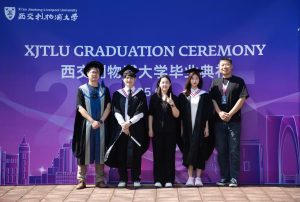活动详情
- 时间: 18:00-19:00
- 日期: 2021年1月18日,星期一
- 地点: HSG19
活动简介
This talk focuses on the integrated ways in which the Chinese social media platform Dǒuyīn launches so-called “trending items” for monetisation. Differing from the umbrella term “viral videos”, trending items are assemblages made by creators: videos, sounds, filters, effects, stickers, word bubbles, and possibly, embedded links to what creators are currently modelling—e.g. clothes, shoes, or cosmetics. For Dǒuyīn(whose global version outside of China is better known as TikTok), the making of trending items is mediated by middle-end, an infrastructural framework/dashboard that connects cloud data with business groups. Middle-end facilitates multi-faceted collaborations, bringing together content (non-technical) and algorithm (technical) teams to identify/monitor potential trending items. The algorithmically selected items are recommended to a large user pool, motivating creators to imitate, including sounds, effects, styles, or dance moves, among other feats. Paid prominent creators (so-called kol, “key opinion leaders”) are then recruited to accelerate the process, pushing the virability of the item to new heights. The popular cultural production of Dǒuyīn therefore consists of collaborative outcomes of automatic algorithms and human engineering. Although algorithms are centrally involved in digital cultural production, this process is not independent of human intervention. Overall, the talk offers insights into the complex interplay of infrastructures, algorithms, creators/users, and platform companies in China’s fast-growing digital culture industry.
主讲人

Shuaishuai Wang (PhD, University of Amsterdam) is a Lecturer in New Media and Digital Culture at the Department of Media Studies, University of Amsterdam. His research examines various datafied and algorithmic processes of digital platforms. Together with Rachel Spronk, he was awarded a seed grant from Global Digital Cultures, one of the seven Research Priority Areas (RPA) at the University of Amsterdam, for the project “The Algorithmic Configurations of Sexuality on Social Media”. His previous work can be found in journals such as Information, Communication & Society, Media, Culture & Society, Feminist Media Studies, and Sexualities.








